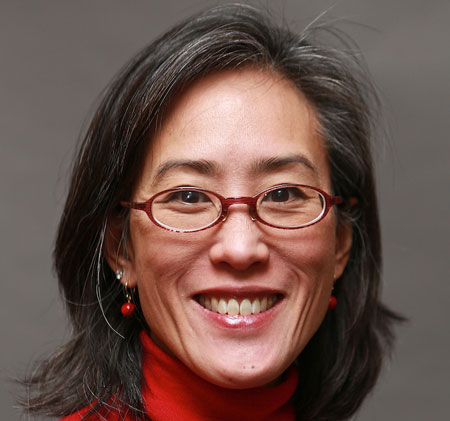Lee, Luyster get Whiting fellowships
The Marion and Jasper Whiting Foundation has granted fellowships to two Emerson assistant professors.
Rhiannon Luyster and De-nin Lee were among the 36 out of 118 applicants who received the award in this year’s grant cycle. The Whiting Foundation fellowships were established in 1965 for New England teachers at the college or university level to enable them to research at locations other than those with which they are most closely associated. The aim is to stimulate and broaden the minds of faculty in order to enhance the quality of their instruction. There were 27 awards made in 2012 that totaled more than $155,600, or about $5,700 per fellowship.

Luyster, of the Communication Sciences and Disorders Department, is a developmental psychologist who studies social communication and language in young children with autism spectrum disorder (ASD). Her research, which has been supported by the National Institutes of Health, the Brain & Behavior Research Foundation, and the Organization for Autism Research, focuses on diagnostic assessment, language and nonverbal communication in toddlers with ASD, and patterns of early development. Luyster will use the Whiting Foundation fellowship to spend a week at a child development laboratory where she can gain hands-on experience using a particular kind of infrared eye tracker. Luyster and her colleagues in Communication Sciences and Disorders are currently working to obtain the grant funds to purchase this equipment to conduct research here at Emerson.

Lee, of the Visual and Media Arts Department, is an art historian who specializes in the history of art in China. Lee’s book, The Night Banquet: A Chinese Scroll in Time (University of Washington Press, 2010), examines the long cultural life of a Chinese handscroll painting, from legends of its 10th-century origins in imperial visual desire and surveillance to textual interventions made by viewers through the centuries, which reveal painting as a technology for performing cultural identity. Her current research examines how women as viewers and colophon writers participated in the culture of Chinese painting. Lee is using her Whiting Foundation fellowship to make a trip to North India this summer to examine first-hand key monuments of South Asian art and culture.
Categories